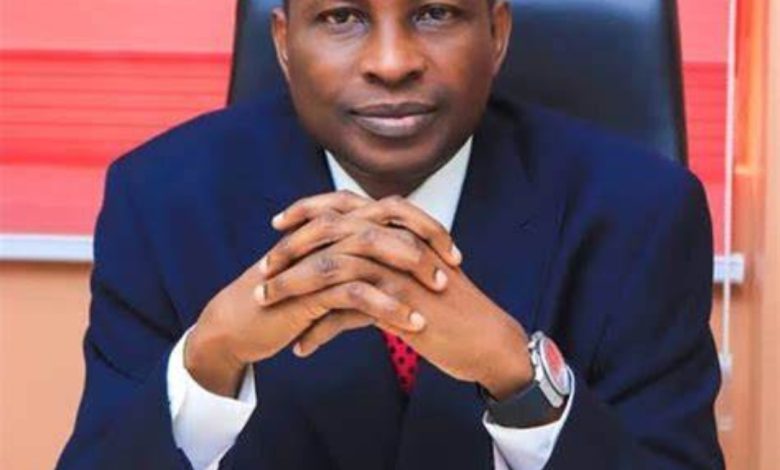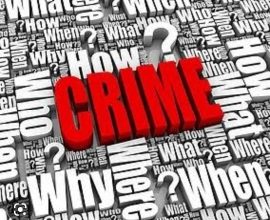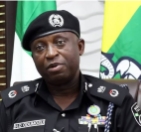
Olukoyede’s timing: Is corruption still fighting back?
By Enejo Shaibu
CITIZENS COMPASS –Mr. Olanipekun Olukoyede was appointed Chairman of the Economic and Financial Crimes Commission (EFCC) by President Bola Ahmed Tinubu on October 12, 2023. This month marks one year since he assumed leadership of Nigeria’s most frequently scrutinised agency.
Since its inception, the EFCC has never faced such intense backlash. The unprecedented level of resistance to the EFCC’s efforts reflects both the deep entrenchment of corruption and the boldness of those facing accusations.
The EFCC’s first chairman, Nuhu Ribadu when the commission was created in 2003, took on corruption with unrelenting dedication, often focusing on the political elite, which earned him public approval. Over time, however, a narrative developed that he selectively targeted those seen as enemies of the administration, which impacted his public support and morale. Many would call that ‘’corruption fighting back.’’
Today, it is no longer a matter of conjecture. We are seeing before our very eyes how some powerful Nigerians have taken steps to scrap the EFCC.
16 Nigerian governors recently filed a case against the EFCC, seeking to have it declared unconstitutional. But before addressing that, it is worth noting an incident that drew significant attention to the EFCC and its current chairman, Olanipekun Olukoyede. The situation began when former Kogi State Governor Yahaya Bello avoided arrest, sparking heightened public interest. Olukoyede’s repeated media updates on the situation made many Nigerians take him and the EFCC’s mission more seriously.
In a statement, Olukoyede recounted a conversation with Bello, who claimed he wouldn’t appear before the EFCC because he feared the agency had “over 100 journalists waiting to embarrass him.” In response, Olukoyede assured him of a private setting, even offering to conduct the interrogation in his own office. Still, Bello insisted on other conditions, including suggesting they meet in his village.
The EFCC boss revealed this in April while addressing media executives at the Corporate Headquarters of the agency.
“On my honour, I put a call to him to honour him as a former governor. He said, I can’t come, claiming that a certain lady has surrounded the EFCC with over 100 Journalists to embarrass or intimidate him and all that stuff. I said if that is your fear, I will make you come directly to my floor. I will invite my operatives to interrogate you in my own office. What could be more honourable than that? Do you know what he said? ‘Can’t they come to my village?’ My Director of Investigations also sent a message to him”, he said.
Questions arise for those who view this pursuit as purely political. For the sake of argument, irrespective of ‘’ulterior motives’’ or not, the central issue remains: if Bello misappropriated state funds, should ‘’political motives’’ overshadow accountability?
Meanwhile, the EFCC’s actions extend beyond Bello. The agency is currently prosecuting former Taraba State Governor Darius Dickson Ishaku and a former state official for allegedly misappropriating N27 billion, about a quarter of what Bello stands accused of embezzling. Other prominent figures, including ex-governors and former ministers, face similar charges, from money laundering to the mismanagement of billions intended for poverty alleviation.
Following these high-profile prosecutions, 16 governors representing states like Ondo, Edo, Oyo, and others filed a suit arguing that the EFCC’s mandate conflicts with the constitution. This is not a verdict by me saying the suit is connected to the high-profile cases mentioned earlier. I’m only wondering why this is coming on the heels of these barrage of prosecutions. It could well be a coincidence.
To the shock of many Nigerians, Dr. Olisa Agbakoba (SAN), former President of the Nigerian Bar Association, recently wrote to the National Assembly regarding constitutional concerns about Nigeria’s law enforcement agencies and challenges hindering the government’s anti-corruption efforts as outlined in Section 13 of the Constitution.
In two letters addressed to the Senate and the House of Representatives, dated October 14, 2024, Agbakoba argued that the Economic and Financial Crimes Commission (EFCC) was an “unlawfully constituted” body, which he believes was established in contravention of the constitution.
However, human rights lawyer Femi Falana (SAN) responded in a separate letter dated October 17, 2024, defending the EFCC’s legal status. Falana addressed his letter to Senate President Godswill Akpabio and House Speaker Tajudeen Abbas, opposing Agbakoba’s view and asserting that the EFCC is not an “unlawful organization.”
In a similar vein, former presidential aide Laolu Akande publicly condemned the governors’ actions, calling it “anti-people” on a Channels Television program. Akande praised the 20 states and the Federal Capital Territory (FCT) for abstaining from the legal challenge, framing their stance as one that aligns with the interests of Nigerians.
Akande said, “At a time when corrosive corruption is tearing away the fabric of our society, we can see how 16 state governments and some lawyers are mounting an assault on the existence of the EFCC. Now, thankfully, there are 20 more states and the FCT who have stayed out of this needless legal drama by not joining, those 20 states and FCT have acted in the best interest of the Nigerian people.”
In addition to these prominent voices supporting the EFCC, many hardworking Nigerians, encouraged by Olukoyede’s ongoing calls for public backing, have come to recognize the importance of maintaining the agency.
A few months after assuming office, the EFCC Chairman held a public event in Abuja on January 31, 2024, themed “Youth, Religion, and the Fight Against Corruption,” where he outlined his mission to combat corruption. Organizing similar events periodically would be beneficial, as raising public awareness is an effective strategy.
Final thought: with these political and legal tensions intensifying, one must ask: is the resistance to the EFCC really about the law, or is it corruption itself fighting back?







